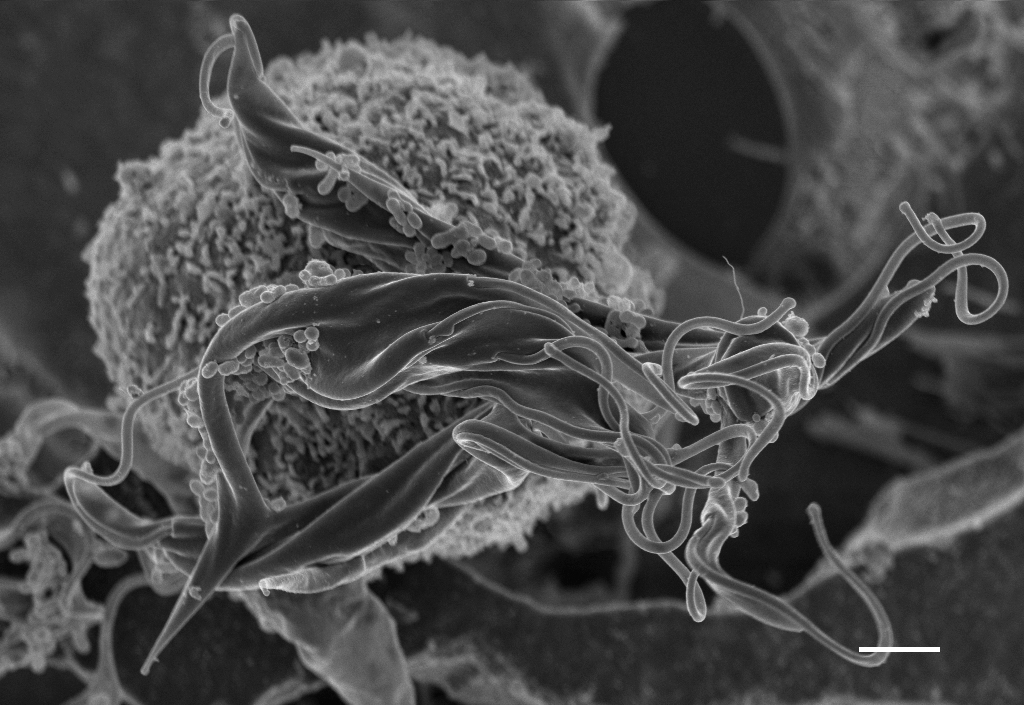Trypanosomes are vector-borne protozoa that infect vertebrates. They are broadly distributed, infecting a wide range of hosts including both humans and domestic animals. Most of our knowledge about trypanosomes comes from studying T. brucei and T. cruzi, which infect humans. These cause sleeping sickness and Chagas disease respectively. In Australia, trypanosomes naturally infect wildlife, however, we don’t know much about their potential to cause disease or how they are transmitted.
Prof. Andrew Thompson’s group at Murdoch University has joined forces with the AMMRF (now Microscopy Australia) at the University of Western Australia through A/Prof. Peta Clode to characterise trypanosomes isolated from Australian wildlife, particularly T. copemani. By combining genetic and molecular analyses, with correlative light, scanning and transmission electron microscopy for structural and functional imaging the researchers are deciphering the interactions that take place as the parasites invade the host cells. They found remarkable similarities between trypanosomes from woylies and the human pathogen T. cruzi. This raises questions of biosecurity concerning the potential transmission of T. cruzi to humans by Australian wildlife if T. cruzi are able to enter this wildlife reservoir.

Scanning electron micrograph of T. copemani attached to a marsupial cell. Scale bar = 2 µm
Together, data from this program are informing decision making on animal conservation and relocation programs, especially in regard to the spread of disease in endangered wildlife. Potential biosecurity issues relating to transmission of exotic, pathogenic human trypanosomes by Australian marsupials are also being identified.
Bettongia penicillata
October 23, 2015